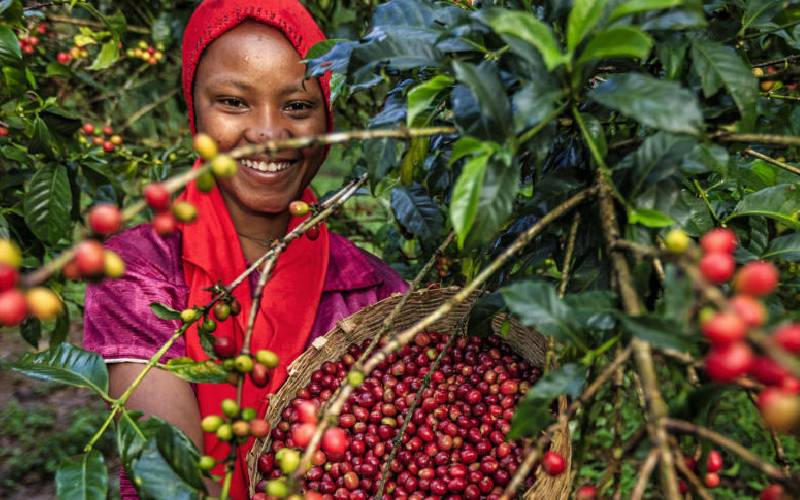×
The Standard e-Paper
Stay Informed, Even Offline

Woman collecting coffee berries from a coffee plant in Ethiopia. [Courtesy]
Coffee agencies in the East African region have proposed the removal of trade tariffs in the continent to boost earnings.